Shifting landscape for The Ocean Race
Published on April 13th, 2022
When The Ocean Race 2022-23 gets underway on January 15, it will be the 14th edition of this crewed, multi-stage around the world race. With teams racing in either the foiling IMOCAs or one-design VO65s, they will contribute to the race history which began fifty years ago.
Initially known as the Whitbread Round the World Race, the race has steadily become professionalized, and with the increased cost of the maxi boats that soon proliferated the race, the development of the Whitbread 60 saw the 1993-94 race provide classes for both.
The 60-footer was deemed to be an absolutely unique human adventure and young racers boasting backgrounds in Olympic sailing or America’s Cup no longer thought twice about applying.
This included Chris Dickson in 1993-94 on Tokio and Paul Cayard in 1997-98 on EF Language, at which time the Whitbread 60 was the only class. While Cayard wasn’t initially the best offshore racer, having never spent more than three nights at sea, he proved to be a formidable leader by winning in his first attempt. 1988 Olympic medalist John Kostecki similarly won as skipper in 2001-02.
A genuine icon in Brazil, Torben Grael, five-time Olympic medalist, also made an impression in his two campaigns of what was now called the Volvo Ocean Race. Now held in Volvo Open 70s, he finished third and first in 2005-6 and 2008-9 respectively. Supported by a great entourage, the Brazilian proved to be a charismatic leader, who also knows how to make concessions in high pressure moments.
All these exceptional champions competed in the round-the-world race with the goal to win. They brought with them a new vision, helming their boats exactly as they would in a round-the-cans race, and often considered to be ‘raving mad’ by the race’s veterans.
“To my mind, it’s the Kiwis who opened the door to youngsters with a background in dinghy sailing,” noted Sidney Gavignet who competed in three editions from 2001 to 2009. “They’re the ones who championed a broader way of thinking, which gained widespread acceptance.”
Olympic 49er champions in Athens 2004, Spaniards Iker Martínez and Xabi Fernández excelled in round-the-world races, later followed by Peter Burling and Blair Tuke, twice winners of the America’s Cup and Olympic 49er champions, who competed against each other in the 2017-18 Volvo Ocean Race having rarely sailed offshore before.
Today, The Ocean Race is a vivid demonstration of the extent to which the gender diversity set out in the rules is now paving the way for female Olympic champions like French sailor Marie Riou and Dutch sailor Carolijn Brouwer, winners of the 2017-18 edition on Dongfeng Race Team skippered by Charles Caudrelier.
Also, Brazilian Martine Grael, Torben’s daughter, who before and after her round the world with team AkzoNobel, secured Olympic gold in Rio and then Tokyo.
With the IMOCA to be included for the first time, Sidney Gavignet considers it a positive step. “The class has the right approach with protected cockpits as well as astounding performances. I think they’ll have a ball… If I had one sentence to sum up The Ocean Race, a race that’s as tough as it is magical, I’d say that it’s a marathon with the intensity of a sprint, both at sea and on land!”
The Ocean Race 2022-23 Race Schedule:
To be confirmed – Prologue Race(s): September to December 2022
Alicante, Spain – Leg 1 start: January 15, 2023
Cabo Verde – ETA: January 22; Leg 2 start: January 25
Cape Town, South Africa – ETA: February 9; Leg 3 start: February 26 or 27 (TBC)
Itajaí, Brazil – ETA: April 1; Leg 4 start: April 23
Newport, RI, USA – ETA: May 10; Leg 5 start: May 21
Aarhus, Denmark – ETA: May 30; Leg 6 start: June 8
Kiel, Germany (Fly-By) – June 9
The Hague, The Netherlands – ETA: June 11; Leg 7 start: June 15
Genova, Italy – The Grand Finale – ETA: June 25, 2023; Final In-Port Race: July 1, 2023
Race details – Route – Teams – Facebook
The Ocean Race (formerly Volvo Ocean Race and Whitbread Round the World Race) will be raced in two classes of boats: the high-performance, foiling, IMOCA 60 class and the one-design VO65 class which has been used for the last two editions of the race. Entries in the IMOCA 60 class will compete for The Ocean Race trophy, while those racing the VO65s will chase the Ocean Challenge Trophy. The 14th edition was originally planned for 2021-22 but was postponed one year due to the pandemic.
Source: The Ocean Race


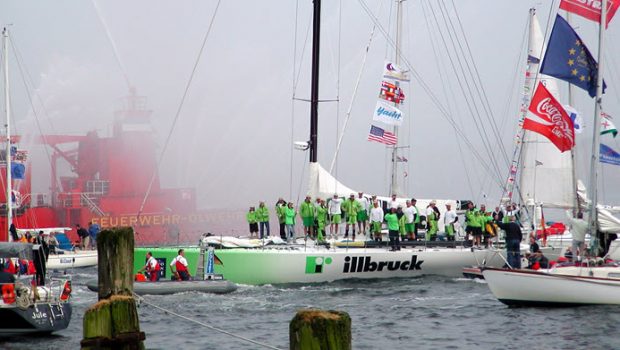


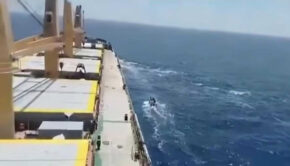
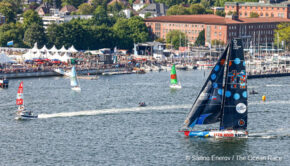
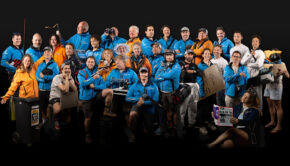
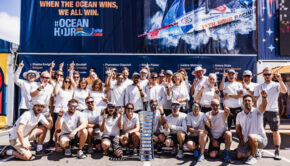
 We’ll keep your information safe.
We’ll keep your information safe.